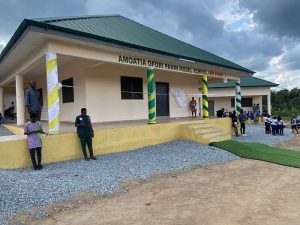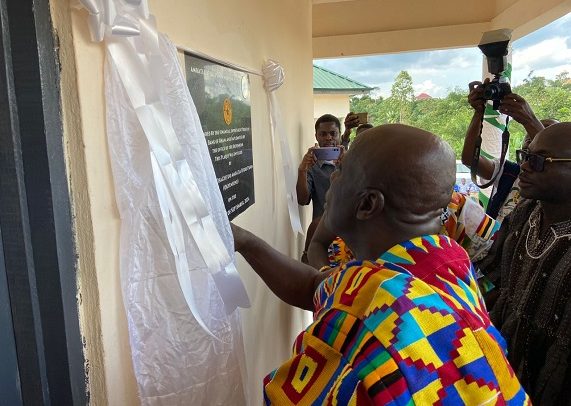The Overlord of Akyem Abuakwa, Osagyefuo Amoatia Ofori Panin, has made a passionate call for increased investment in quality teaching, emphasizing its crucial role in delivering top-notch education.
He made this clarion call during the commissioning of two state-of-the-art model schools in Akyem Achiase and Akyem Wenchi in the Eastern Region on Thursday.
Funded by the Financial investment trust of the Bank of Ghana and implemented by the office of the Okyenhene, the Osagyefuo Amoatia Ofori Panin Model schools, named after the Okyenhene, boasts of impressive infrastructure, including modern classroom blocks, well-equipped libraries, advanced computer labs and other cutting-edge educational facilities.
These edifices serve as a testament to Okyenhene’s unwavering commitment to quality education and his vision for empowering future generations.
During the commissioning ceremony, Osagyefuo Amoatia Ofori Panin stressed that teachers play a vital role in shaping the minds of future leaders.
He argued that investing in teaching is essential for students to truly understand and acquire knowledge, develop critical thinking skills and cultivate innovative problem-solving abilities
The Okyenhene highlighted that teachers’ impact extends beyond knowledge transmission, as they help shape future generations and guide and refine students’ characters and abilities.

He urged the government to prioritize teacher development, recognizing that quality education is the backbone of a prosperous nation.
He emphasized the need for better remuneration and benefits for teachers, improved working conditions and ongoing professional development opportunities.
While acknowledging the significant strides made in education, particularly the free Senior High School program introduced by the Akufo-Addo government, Okyenhene encouraged policymakers to build on existing successes.
This according to him, will ensure sustainable investment in quality teaching and address pressing challenges in the education sector.
-BY Daniel Bampoe


